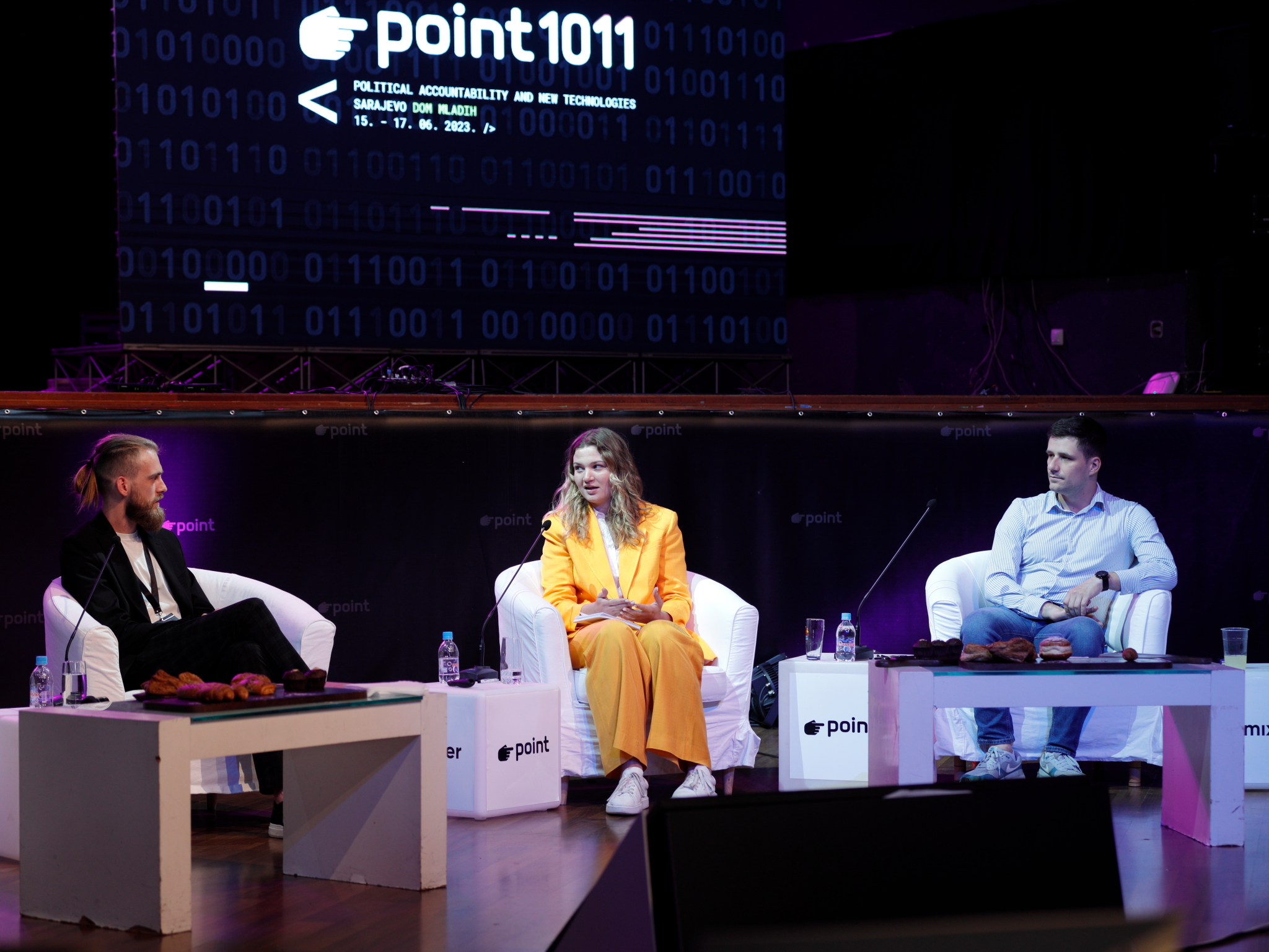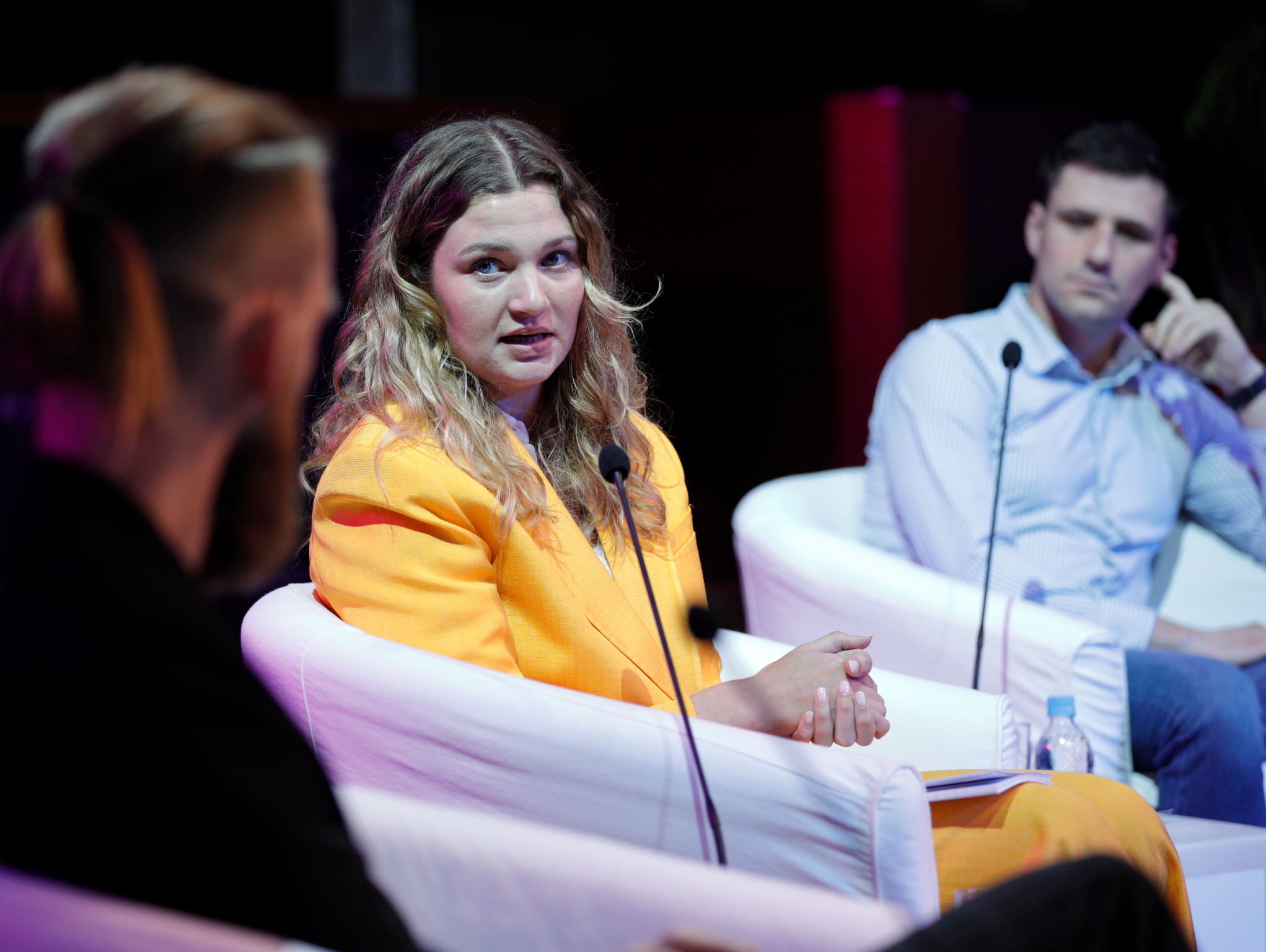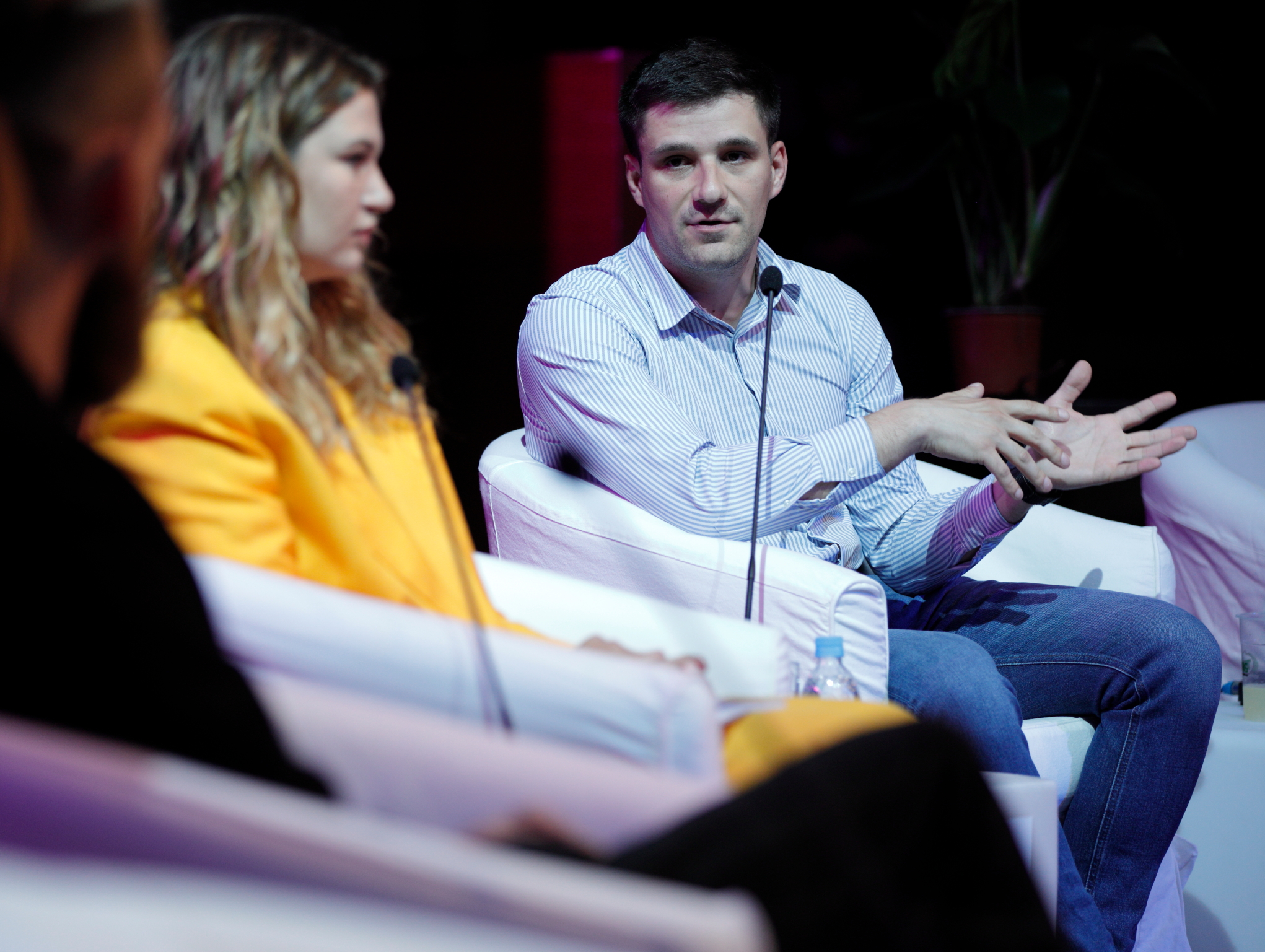Disinformation Inc. – Monetization built on deceit
At this panel of the POINT 1011 Conference, speakers discussed how ads end up on websites that spread disinformation and how those websites make money. Speakers also presented the results of some research on this topic.

Photo: Vanja Čerimagić
This panel included the following speakers: Roberta Schmid from NewsGuard, Craig Silverman from ProPublica and Stefan Janjić from Fake News Tragač. The panel was moderated by Emir Zulejhić from CA “Why not”.
Craig Silverman from ProPublica presented results from research Investigating Ad-Founded disinfo, which was done in cooperation with fact-checkers from around the world. He pointed out that online advertising is growing bigger and bigger every day. He also said that most famous companies are using ads on their websites. Silverman emphasized that brands often have no idea what they’re funding. Not paying attention to what they are funding may lead to funding disinformation and scam content. Also, he pointed out that it is very complicated to track the flow of money when it comes to digital advertising. In mentioned research, the focus was on Google’s Ads Business investigation. There were two areas of reporting in research: Identify how Google’s ad business helps provide funding to global publishers of disinformation and deanonymize its sellers’ files and use that to identify other types of violations and harm in its ad network. In research, they were looking for ads which are breaking Google Ads policy. He pointed out that In Serbia, Bosnia and Herzegovina and Croatia, Google is usually the only partner in advertising. Silverman mentioned an example of an ATV website, which is under the sanctions of the USA, but there were Google ads on the ATV website.
Roberta Schmid pointed out that Google is the biggest player when it comes to monetizing disinformation. She also mentioned other companies which advertise disinformation. They are often unaware that they are spreading disinformation. She pointed out that disinformation is often funded by some brands. Last year, one week after the invasion in Ukraine started, they found 160 websites that were spreading disinformation about war, and 27 of those were benefiting from programmatic advertising. At the time, 18 of those ads were played by Google Ads. She added that they’ve done the same experiment again, and the number of news websites that publish false information about the war and benefit from programmatic advertising tripled. There is now a list of over 380 websites that spread disinformation about the war. Also, they’ve found 79 very well-known brands which don’t know they’re advertised on disinformation sites.

Photo: Vanja Čerimagić
Stefan Janjić from Fake News Tragač was talking about ads promoting mostly medical products which are not certified by state agencies. They have fake experts, fake diplomas, fake satisfied users of those products etc. He pointed out that those products cannot be found in local stores and pharmacies, but can be ordered directly from manufacturers. Janjić pointed out that these ads, or other scams, often can be found on credible and professional media. He added that fact-check analyzes about those products often make companies who are selling them angry.
Emir Zulejhić pointed out that avoiding Google Ads is one of the main strategies seen in the region. He said that the interesting question is who is responsible for the content being shown on ads – is it a media website, is it a company that owns a plug-in or is it the advertiser who is showing the ads? There are three actors and it is unknown who is legally responsible for that content. In the case of Bosnia and Herzegovina, there is almost non-existing internet regulation and almost the highest youth unemployment in Europe. He claimed that the combination of those two results in huge disinformation in the ad industry.
Roberta Schmid emphasized that the Newsguard has a database with website reliability ratings. She added that at this point Newsguard has rated over 8,700 news websites in nine countries. Those are the websites that contribute to 95% of the online engagement in each of the countries they are from. Newsguard uses nine standard journalistic criteria of transparency and credibility when analyzing media. Based on those criteria, media can be rated between 0 and 100, depending on which of the criteria have been met and which have not been fulfilled. Newsguard also uses a so-called Nutrition label for each of the websites, which explains in detail how they came to the score. She also mentioned that a lot of people are using their data.

Photo: Vanja Čerimagić
Emir Zulejhić shared that quality journalism is the most important victim of the entire system being built in the region. He said that many mainstream media outlets shifted their work from producing content to more copy/pasting content. He said that “everybody wants to be first and everybody wants to publish everything”.
Roberta Schmid claimed that Google would react once when journalists discover that ads of the brand or brands Google works with are on websites they shouldn’t be. But even when Google deletes it, Schmid emphasizes that the reaction often comes too late because disinformation spreads too quickly. She said that there is a need for bigger change in that context. She thinks finding a way to demonetize those websites and moving the financing to websites that want to live up to quality standards of journalism is extremely important.
Stefan Janjić said that Fake News Tragač has a lot of complaints when they’re doing fact-checks. He mentioned an interesting case where several websites are trying to remove or correct their articles which are identified as false, but they use a clickbait title out of correction. He added that the fact-checking process should be continued because a lot of people who are a little bit interested in finding out the truth are trying to find more information, and then they are googling and finding articles by Fake News Tragač.
Author: Sanjin Mahmutović